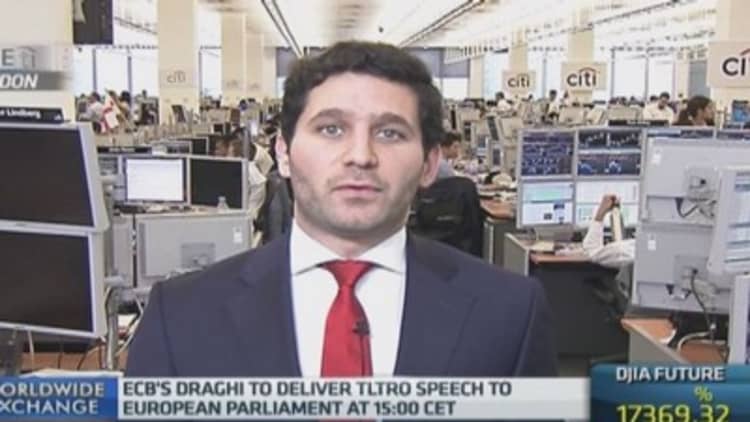
The relationship between the euro zone's two leading members has wobbled in recent months due to different economic and fiscal approaches. But as France's Prime Minister visits Germany, experts say the countries could learn a few economic lessons from each other.
French Prime Minister Manuel Valls is in the country until Wednesday, and is expected to face tough questions on his government's track record on implementing reforms and cutting its deficit—which Germany has increasingly criticised.
Valls told a press conference on Monday: "I understand the doubt and questions of the German people, its representatives and sometimes the press – many who say, essentially, 'We suffered through reforms and the French aren't capable of it. And if they don't do it it's not good for Germany'."
In France, however, some have complained that Germany is hoarding its cash and not pulling its weight to help boost growth in the euro zone.
Read MoreFresh week of woes for France
"Germany must fulfil its responsibilities," Valls said in a policy speech earlier this month. Critics of German economic policy also point to an overreliance on export-led growth and an unwillingness to try and push wages higher to boost consumer demand.
With these concerns in mind, here is a guide to what Germany and France—the euro zone's two biggest economies by gross domestic product (GDP)—can learn from each other.
What Germany can teach France:
Fiscal discipline
France has continuously failed to reign in its public deficit and revealed in early September than it would not reach the Brussels-mandate target of 3 percent of GDP until 2017–-two years after its twice-delayed deadline.
This is a contentious issue for Germany, which turned its deficit into a surplus back in 2012 and insisted that bailouts for the region's most troubled economies were contingent on stringent deficit reduction targets.
Efficiency
Although France prides itself on its generous welfare system, this could benefit from some Germanic efficiency. Income inequality in the two countries is similar, even though France spends a lot more in welfare—"which suggests that in France, there are efficiency gains to be had", said Guntram Wolff, director of Bruegel, told CNBC.
The power of the state
According to Timo Klein, senior economist at IHS Economics, the concentration of political powers in the hands of the president—currently Francois Hollande—may be "sub-optimal". By comparison, Germany's federal structure means "the proximity of political decision-makers to the economic affairs they are making decision about tends to make for better economic outcomes."
Klein said France should also focus on the rules governing its labor and products markets. The French state's "detailed interference", hindered "the freedom of economic decision-making of economic actors", said Klein.
Read MoreRecord German trade surplus points to strong third quarter
The role of trade unions
Although trade union membership in France is low compared to the rest of Europe, at only 8 percent, French unions hold vast powers, according to Worker Participation, which provides information on workers' right in Europe. Not only are they able to mobilise citizens very quickly, they are also invited by the government to weigh in on national economic issues.
"In Germany, the role of the unions has somehow been reduced by the reforms of Chancellor Gerhard Schroder," Wolff told CNBC. "It's a free system in which employers and unions negotiate on a sector-wide scale".
Klein added that the difference between the quality of education provided by the top universities and those elsewhere "contributes to bad union/business relations, given the mutual lack of respect".
What France can teach Germany:
Investing in infrastructure
Klein said that France was able to pull together big infrastructure projects quicker than Germany. He suggested this was due to France's centralized state and to less opposition from environmentalists—"which may be a bad thing in the long run".
Germany, Klein concluded, should raise its investment in infrastructure, especially in transport and IT. This should "further raise competitiveness, without this having to impair exports in any way—quite the opposite".
Read MoreInvestors may catch a bad case of the European jitters
Wolff concurred that Germany could learn from France the importance of public investment. He said that regulatory issues in the services sector, for instance, were holding back investment, and that "skepticism and protectionism" were also playing a role in preventing new sectors, such as IT, from emerging.
Productivity
Despite France's controversial 35 hour-working week and repeated calls for labor market reforms, French productivity per capita is higher than in Germany.
According to 2013 figures from the Organisation for Economic Co-operation and Development (OECD), the average French worker generated 51.8 euros ($66.4) for every hour worked, whereas his German counterpart generated 47.2 euros.
In the end, explained Guntram Wolff, "we really needs supply-side reforms (from France) but at the same time we need the demand side (in Germany) to fall in place as well".
Follow us on Twitter: @CNBCWorld


